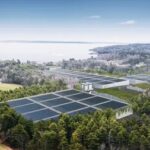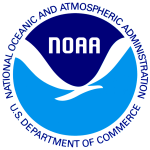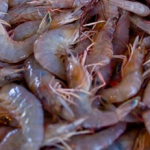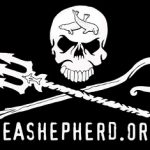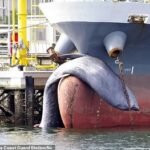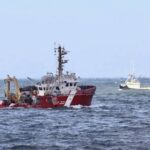Daily Archives: September 4, 2017
Warning signs for salmon
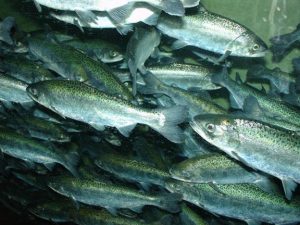 The numbers of young salmon caught off the Oregon and Washington state coasts during an annual federal survey cruise this June were among the lowest recorded in the past 20 years. In fact, numbers were low across nearly all the species researchers regularly catch or observe — from birds like the common murre to forage fish like anchovies and smelt. Months ahead of schedule, as a kind of heads up, West Coast researchers, project managers and program directors decided to send out a memo in mid-August detailing their initial findings — data that would usually be combined with other information and put out on a webpage at the end of the year. The data is preliminary, but researchers say it is clear many young coho and Chinook salmon didn’t survive the migration from freshwater streams and rivers to the ocean this year, while poor ocean conditions could impact salmon returns to the Columbia River for the next few years. click here to read the story 21:44
The numbers of young salmon caught off the Oregon and Washington state coasts during an annual federal survey cruise this June were among the lowest recorded in the past 20 years. In fact, numbers were low across nearly all the species researchers regularly catch or observe — from birds like the common murre to forage fish like anchovies and smelt. Months ahead of schedule, as a kind of heads up, West Coast researchers, project managers and program directors decided to send out a memo in mid-August detailing their initial findings — data that would usually be combined with other information and put out on a webpage at the end of the year. The data is preliminary, but researchers say it is clear many young coho and Chinook salmon didn’t survive the migration from freshwater streams and rivers to the ocean this year, while poor ocean conditions could impact salmon returns to the Columbia River for the next few years. click here to read the story 21:44
Catch Shares – New Zealand’s fisheries quota management system: on an undeserved pedestal
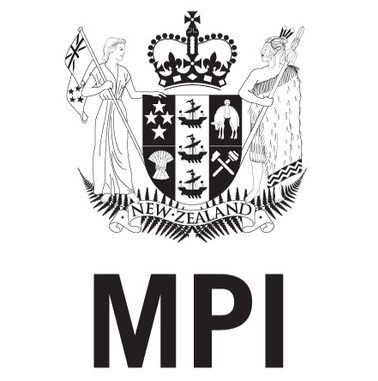 In popular imagination, New Zealand’s fisheries management system is a globally recognised story of sustainability, reflecting a “clean and green” environmental ethos. Indeed, New Zealand’s fisheries have been ranked among the best managed in the world – an accolade based on the early and wholehearted adoption of a Quota Management System (QMS). This perception is echoed in a recently published article, but we take issue with the methodology and its conclusions. Claims that New Zealand’s QMS is an unmitigated success simply do not match the facts. click here to read the story 18:32
In popular imagination, New Zealand’s fisheries management system is a globally recognised story of sustainability, reflecting a “clean and green” environmental ethos. Indeed, New Zealand’s fisheries have been ranked among the best managed in the world – an accolade based on the early and wholehearted adoption of a Quota Management System (QMS). This perception is echoed in a recently published article, but we take issue with the methodology and its conclusions. Claims that New Zealand’s QMS is an unmitigated success simply do not match the facts. click here to read the story 18:32
Scientists concerned over health of fish species as wastewater treatment plants fail to remove drugs
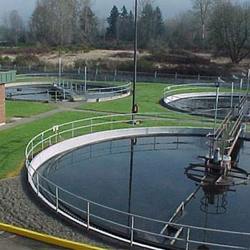 Human antidepressants are building up in the brains of bass, walleye and several other fish common to the Great Lakes region, scientists say. In a new study, researchers detected high concentrations of these drugs and their metabolized remnants in the brain tissue of 10 fish species found in the Niagara River. The discovery of antidepressants in aquatic life in the river raises serious environmental concerns, says lead scientist Diana Aga, PhD, the Henry M. Woodburn Professor of chemistry in the University at Buffalo College of Arts and Sciences. “These active ingredients from antidepressants, which are coming out from wastewater treatment plants, are accumulating in fish brains,” Aga says. “It is a threat to biodiversity, and we should be very concerned. click here to read the story 16:57
Human antidepressants are building up in the brains of bass, walleye and several other fish common to the Great Lakes region, scientists say. In a new study, researchers detected high concentrations of these drugs and their metabolized remnants in the brain tissue of 10 fish species found in the Niagara River. The discovery of antidepressants in aquatic life in the river raises serious environmental concerns, says lead scientist Diana Aga, PhD, the Henry M. Woodburn Professor of chemistry in the University at Buffalo College of Arts and Sciences. “These active ingredients from antidepressants, which are coming out from wastewater treatment plants, are accumulating in fish brains,” Aga says. “It is a threat to biodiversity, and we should be very concerned. click here to read the story 16:57
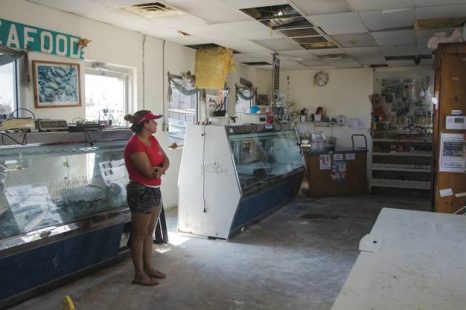
Small business works to return after Harvey
Hurricane Harvey brought destruction to Crossroads businesses, stealing all the inventory of many and leaving others with collapsed structures. About 40 percent of small businesses never open their doors to customers again after a disaster, according to the Federal Emergency Management Agency. Mary and Kevin Nevarez, owners of Evelyn’s Seafood Market, are determined that won’t happen to the iconic Port Lavaca business that has been open on the bayfront since 1942. “As far as everything inside … it’s completely shattered,” The couple applied for a Small Business Administration low-interest disaster loan because FEMA doesn’t offer funds to businesses click here to read the story 14:59
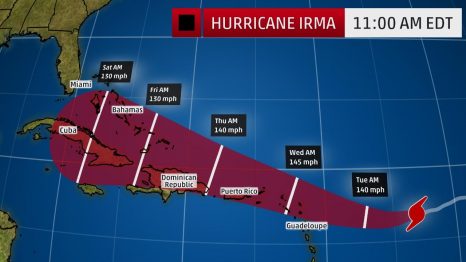
Hurricane Irma a Growing Concern for the U S: Hurricane Warnings Issued For Leeward Islands, Hurricane Watch Hoisted in Puerto Rico
Hurricane Irma is a growing threat to the continental United States, with impacts possibly beginning in Florida later this week. Before that, Irma will bring dangerous conditions to the Leeward Islands, Puerto Rico, Hispaniola, the Bahamas and Cuba. The center of Irma is located 560 miles east of the Leeward Islands and is moving west-southwestward at about 14 mph. Irma is a Category 3 hurricane and satellite imagery shows that it has become better organized in the past day with an eye now clearly evident. click here to read the story 13:44
As Irma intensifies, a disturbance churns in the Gulf of Mexico – click here to read the story Hurricane Irma Public Advisory– National Hurricane Center click here
Is There a Better Way to Farm Fish?
 Aquaculture is a huge industry. In 2014, for the first time, more than half of all seafood consumed by humans came from fish farms, with salmon among the most farmed species. But aquaculture is also contentious — in large part because of the problems with existing open-net pens. Yet Jeremy Dunn, executive director of the BC Salmon Farmers Association, says the industry is already starting to move away from open-net pens. While Dunn says 90 per cent of new investment globally is in variations on the technology, leading salmon-farming countries such as Norway are investing in hitherto unfeasible technologies, such as land-based tanks and recirculating aquaculture systems. click here to read the story 10:54
Aquaculture is a huge industry. In 2014, for the first time, more than half of all seafood consumed by humans came from fish farms, with salmon among the most farmed species. But aquaculture is also contentious — in large part because of the problems with existing open-net pens. Yet Jeremy Dunn, executive director of the BC Salmon Farmers Association, says the industry is already starting to move away from open-net pens. While Dunn says 90 per cent of new investment globally is in variations on the technology, leading salmon-farming countries such as Norway are investing in hitherto unfeasible technologies, such as land-based tanks and recirculating aquaculture systems. click here to read the story 10:54
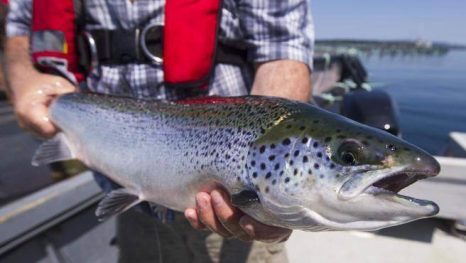
Study links fish farms to spread of antibiotic resistance
New research that finds a possible link between fish farms and the spread of antibiotic resistance doesn’t surprise marine biologist Inka Milewski. “Anytime you have animals grown in very concentrated conditions in these intensive livestock operations, whether it’s pigs or chickens, or in this case, fish, you’re going to have the potential for disease problems,” Milewski said in an interview Sunday from her home in the Miramichi in New Brunswick. “The solution to a lot of these problems is to put antibiotics into the feed. And so it should come as no surprise to anyone that they have found antibiotic resistance associated with fish farms.” The study released last week by Jing Wang of Dalian University of Technology in China concluded that genes for antibiotic resistance are getting into ocean sediments through fish food. click here to read the story 09:49
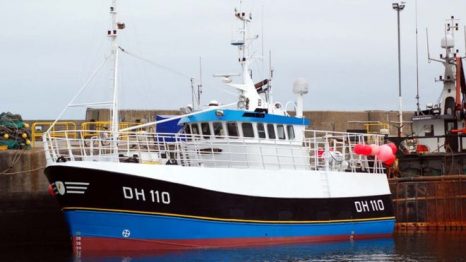
Crab fishermen off Orkney taken to safety in Scrabster
Eight crab fishermen have been escorted to safety by lifeboats after their boat rapidly started filling with water. Coastguard and lifeboat personnel responded to the incident involving the vessel Kingfisher north-west of Orkney. Its problems started at about 17:30 on Sunday when water started leaking from a burst pipe. They were accompanied to Scrabster on the Scottish mainland by RNLI lifeboats from Stromness and Thurso. link 09:12

































